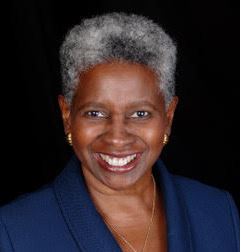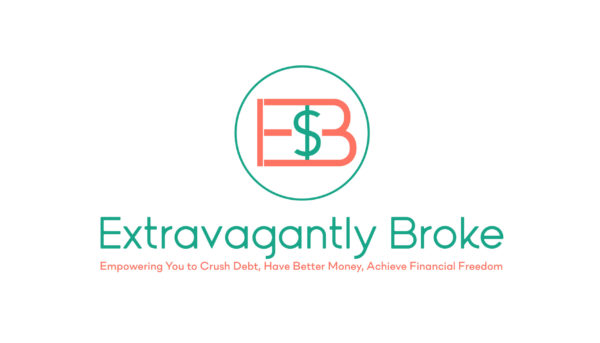Money is a fact of life! Some people worship money, while others think it’s the root of all evil. But, whether you love it or hate it, we all need it! It touches every aspect of our daily lives. So, wouldn’t it be great to know how to use it to your advantage?
Well, here’s some good news.
In part six of my Empowering Women Series, financial education expert Jacqueline Cooper will do just that! Jackie has helped thousands of people get their finances in order. And here, she shares many of her best tips in a fun, down-to-earth, uncomplicated way.
So lean in and learn from the best.
You can listen to full, fun, audio version here. (Text has been edited for clarity and readability.)
Related Post – Part One: The Best How To Budget Advice From A Self-Made Millionaire.
Related Post – Part Two: How To Overcome A Crisis And Still Achieve Financial Independence.
Related Post – Part Three: How To Conquer Money Challenges and Improve Your Finances Now.
Related Post – Part Four: How This Mom Slayed $1 Million Of Debt In Under 3 Years.
Related Post – Part Five: How To Master Self-Care And Money During Stressful Times.
Related Post – Part Six: How To Navigate Money, Retirement, And Entrepreneurship, The Smart Way!
Related Post – Part Seven: How To Strengthen Your Marriage, Money, And Mental Health.
Related Post – Part Eight: How To Achieve Better Nutrition, Health, And Finances
Table of Contents
Can you tell me a little bit about your background?
Okay, so I founded Financial Education Associates about 18 years ago. We provide homebuyer, homeowner, and financial education classes.
It’s one of the requirements in our state [MA] for first-time homebuyers to get our excellent mortgage products.
But then in doing that, I found that a lot of people needed help in getting their money straight.
So as an offshoot, I started doing financial ed. and counseling for people who wanted to do entrepreneurship, education, and retirement.
So, how did you get interested in personal finance from the start?
Okay, so it’s always kind of always been a thing for me. Even as a kid, I liked to save.
Back in the day, my mom and my grandmother used to leave the money for me to go to pay the bills after school.
So, that used to be my [thing]. You know, go home, get the envelopes, make the rounds to the utilities, and head back home on the bus. So, I was always involved in the family’s finances just from that perspective.
And, I developed a love of homeownership through the real estate pages when I was a kid. I was nerdy! I’m a nerd, I own it!
Then, I started doing financial and homebuyer education work through a part-time job.
But, we all know that we do things for a job and…
Some things we teach shine a light on our life
So I had to get some stuff straight.
DeShena: Absolutely! It’s like if you’re going to teach it — you should probably be living it, right!
Money Issues
At the time I got that job, we were having some issues around money due to a career switch.
Both me and my husband changed jobs and careers at the same time which caused the money to not be too great.
And, it was difficult for us to pay the bills. And you know, if you don’t pay your bills, the creditors call.
Finally, one day [#1] I just answered the phone. [I asked] what do I have to do? [After all, I knew I owed the money, so let’s talk this out!]
So, I really kind of [#2] made friends with my collections people, you know.
Because what I found out is that they are people who need the money too, or they would not be doing this for a job.
And so,
If you kind of tap into the humanity of people, and not holler back or swear back and all of that — sometimes they’ll help you.
And you know how if you’re over the limit every month, you get an over the limit fee? One creditor stopped my fees and interest for like 6 months so that all my payments went towards my debt. And so that I could be okay.
So we made our agreement. [#3] I did what I was supposed to do. And I floated through that.
And then with the mortgage, I said, okay, what do we owe? How can we do this?
[#4] So I tried to refinance. And it worked!
The interest rates were lower at the time. And I was able to refinance and pay off all the bills and the mortgage payment.
But one of the things that I learned is that other people didn’t know you could do this.
And that is what really inspired me with financial education. Especially for the people that kind of totally messed up their money and didn’t realize there’s a way out.
So I got into teaching it and looking at it from the perspective of there’s a lot of things that people just don’t know.
DeShena: Absolutely! I love that you said you just answered the phone. And that there was no screaming.
Because you know that expression — you catch more flies with honey than with vinegar. And that is so true! People are more inclined to HELP YOU when you’re nice to them.
That’s something for people to definitely take away — answer the phone and talk to your creditors. Because the problem isn’t just going to go away on its own, magically.
Be Proactive

On the plus side, [#5] if you’re having a problem, CALL THEM FIRST!
Like, I didn’t even think about that because your first thing is denial. And, this can’t possibly be a problem.
And now you’re like, oh my gosh, how am I going to fix this?
But, if you know you’re about to have a problem like a job loss or the work stoppage we saw [this] year, call somebody first! Don’t wait until they’re calling you. Because…
You get a whole different group of people if you call first!
[At that point], you’re still talking to customer service. If you wait until they call you, they’re calling from collections.
And even worse, they might be calling from a collection company to whom they already sold the debt.
And those people bought a debt that they’re trying to get money from.
So, it’s a whole different vibe.
They’re not trying to maintain the customer.
DeShena: Yes! That’s another key takeaway! I mean definitely, start trying to work it out as early as possible. Because, as it progresses, the situation gets worse. And it’s better to be proactive.

So the people you educate, what are their biggest money mistakes?
Well, one of the biggest mistakes is, and I get requests for this all the time, can you fix this for me?
And the answer is, “no.” [#6] YOU [need to] fix it yourself.
Because the Consumer Financial Protection Bureau allows you access to fix this yourself. And trust and believe…
If you fixed it yourself, you’re not doing it again!
But if I fix it for you, then you know there’s somebody, that’s a ‘fixer.’
And personally, that’s not what I want to do with my time — fix other people’s credit.
Disseminate information, I’ll do it any time! But fix your problems — oh, no, no, no! Not my thing.
Plus, I find that fixing things yourself is the best.
And then, there’s also not believing in their own capacity to make change.
If you look at your credit report and you have four or five overwhelming things, then you can’t see the small steps.
You just see the elephant.
You need to say, okay, this is my problem. So, if you need some help and some people working with you to figure that out, then that’s cool.
[In the meantime,] you really need to…
Make Small Changes.
But, people don’t believe they can.
I’ve heard, ‘no, I can’t do that.’ But I’m not telling you to cut your cable off.
I’m asking you to [#7] look at your situation and pick one thing. YOU pick the thing. I’m not picking the thing!
I don’t pick the thing, because that’s not my life.
I mean, when I first started, one of the famous things was that, oh, you should cut the cable.
Well, if people don’t go anywhere — and all they have to do is watch TV all their life — how can they cut out the thing that they’re doing?
You know, there are other things [to cut] that may make a bigger impact and that and cause less pain. Because…
People don’t do the painful thing!
They just do not!
So, YOU pick the thing that you think you should not have been spending this kind of money on.
And then the other thing is…
Everybody creates beliefs and strategies based on myths and legends.
You know like, ‘I thought,’ or ‘I heard,’ or ‘someone said.’
Here’s the thing, there’s so much factual information out there, why bother with the myths and legends?
Anytime somebody tells me something, I go research it myself.
[#8] There’s credible financial information in the Consumer Financial Protection Bureau. And in any state attorney general’s consumer affairs office.
So there are a lot of places where we can get factual information, but everybody is going with the myth and legends.
Before the internet, I could see that. But now, there’s no excuse. My friends laugh at me because when people talk, I’m Googling under the table like, is that true, is that true?
Me: I love that you say they need to fix it themselves because you know what, that goes back to mindset. It’s like, if you think you can’t, then you will never even try.
And, if you don’t change your thinking and actually learn something, then you’ll just keep making the same mistakes.
Also, I like it when you say that they need to pick the thing that they can cut. And that goes back to intentional spending.
So it’s like you pick the thing that you can do without. And you can keep the thing that you love the most. But you’ve got to cut somewhere! And those small changes that can actually lead to big results and get you closer to where you want to be.
So in your financial education classes, you help people with retirement, correct?
Yeah, it’s kind of an interesting offshoot. My very first job ever was in pensions. And so from a very young age, retirement was fascinating to me.
But yeah, retirement is important for a number of reasons now, because there are a lot of people retiring.
And also, when you are in your fifties, and you lose your job, it may not be easy for you to get another job. So your easiest access might be to ‘retire’ and have access to your retirement money.
So for women, in particular, what things should they be doing to get prepared for retirement?

Education
Okay, so the biggest thing is to [#9] educate yourself on what your income in retirement will be. And that would include any:
Because you know I’m with the Boomers. So most of us, at one point in time, may have had a job that we are guaranteed a pension from.
And you know, because of consolidations, jobs closing, and all these different things, we may not be connected with that company anymore.
But they still owe us that money.
So my peers, I always tell them to go back and dig for any pensions. [#10] If you’ve worked for at least 10 years somewhere, go look and see if they have money for you.
And that’s going to make a big difference even though it may not be big money.
But, if somebody’s going to send you $500 a month for the rest of your life — that’s cool!
Social Security
With social security, the rules are dependent upon where you work.
My husband did part government and part in the social security system. So he will get both.
But, under what rules? And what can he collect?
Because there are all these different rules that you kind of have to stay on top of. [#11] So know when you’re going to get your money. And how much are you going to get.
So, you know I live my life by Excel spreadsheet. So get something and figure this out.
DeShena: So, it kind of sounds like the philosophy behind the FIRE movement. The rule of thumb is that you need to save at least 25 times your annual expenses to be considered financially independent. So, how much you will need to retire will depend on how much your expenses are. You know, so the lower your expenses are, the less you’ll need.
Debt

Jackie: So here’s the other theory. First, find your money, and your benefits — but [#11] pay-off-your-debts.
My sister told me a couple of years ago, ‘I got 5 years until retirement.’ I said — with that debt!?
Are you going to pay that debt off with your retirement money? And she’s looking at me. She never thought about it!
I said…
Do you want to spend your retirement money paying off your MasterCards?
No. Pay it off!
Work on that, while you’re working. Because it reduces your expenses.
Also, are you paying for stuff that you don’t want to pay for?
You know, [#12] people get discounts at different ages. Everybody thinks it might be 65. But anywhere from ages 50 to 65, there are different pockets of things that you might be eligible for.
But [just remember], get your expenses stable. Because like you said, you don’t need to have as much saved if you don’t spend that much money.
Time
And the last big thing about retirement is to [#13] figure out what you’re going to do with your time.
See, here’s the thing, while you’re working you can think of a lot of things that you want to do.
Most of the people that I know who retired are pretty good with that for 3 months before they said:
‘Okay, the closets are clean. The clothes are taken to Goodwill. I fixed this. I fixed that. What the heck am I going to do [now]?’
Back in the day, at 65, you weren’t able to [do very much.] But 65-year-old people can do a whole lot of stuff now!
They can go places, do things, volunteer. I know so many people that even go back to work two days a week.
Because, what [else] am I doing with my time? I have no obligations. No, anything to do!
And that mess will kill you!
You need some people to interact with. Just imagine what it’s like to do nothing for years on end. Not hours, YEARS ON END — of nothing! Nobody to hang out with. No Hobbies. No nothing!
[For example,] my father passed away at almost 95 years old. He was a minister. He retired from his secular job at 55 and from his ministerial job at 70.
He lived 25 years past the ministerial job. And that’s a whole long time to just sit around.
What advice do you have for women who aspire to be entrepreneurs but may be afraid to take the leap?
[#14] Have some kind of plan and some type of goal. The biggest issues I see are people not thinking their idea through.
Or thinking that the business is going to fix their money, when [#15] your money has to be straight before you go in.
Understand Your Credit
So, say you need a small loan to get your website setup and supplies for your office. Nothing big, just maybe $3,000 or so.
[For instance,] you want a Mac and a printer. Because now, that’s really all it takes to start a business. If you have a computer and a printer, you should be set. You have no barrier to entry.
But say you need some money to do that.
People have this illusion that business credit is something that’s apart from them.
But your business credit is YOUR credit.
So if you can’t sign your name under that Jackie entrepreneurship thing on the loan, [then that’s a problem].
Because they’re going to pull Jackie’s credit. Until Jackie’s been in business long enough to have business credit, they’re pulling Jackie’s credit.
So, getting your money straight [is crucial.]

Separate The Money
And then, when you do start, even if you’re starting off small:
- [#16] Register your business.
- [#17] Have a separate business account.
- [#18] DO NOT commingle your money.
Because you might make more [money] than you think sometimes.
I met this woman who’s a fashion influencer. And she made some insane money. But all her money is mixed up in her personal account.
It’s like, ‘no.’ You need [your business money] over there. So you can say I am the owner of this business and we have these funds.
And I earn this [amount with the business]. And I pay myself from this also. It makes a difference.
You know everybody’s all about, well, I got to pay taxes. Well, if I didn’t pay into Social Security all the years I’ve had my business, I don’t know where I would be.
You know, so make money and do what you’re supposed to do.
Know The Rules
When you open the business account it has slightly different rules maybe then your personal account. So read the pamphlet. Get your little magnifying glass out and:
- Read the little print.
- Set up your business account.
- Let all your money flow through there.
The business money goes in. The money spent on business expenses is coming out.
And then, [#19] get yourself a business credit card so that you can earn points or whatever. And that kind of stretches your money by a few dollars.
And just keep that stuff separate. So, at the end of the year when it’s time to do that schedule C — Boom!
You’re not trying to dig things out from your personal money.
So where can people find you?
Okay, so there are two places that I can be found. First, there’s my nonprofit account, and it’s money-classes.com. That’s the website where people can also register for classes.
And also, I have a Facebook group called Our Money – For Women Over 50. But I have women of all ages. Some of the information benefits everybody. And some of it is geared towards retirement for women over 50. But, everybody can join — as long as you’re a woman.
Well, thank you Jackie! I appreciate all your fascinating insight!

Jacqueline L. Cooper MCP, AFC®, FFC®
JACQUELINE COOPER founded Financial Education Associates in November 2001. In demand as an instructor of home buying classes, Jacqueline started FEA to present unbiased information to people seeking to put their finances in order to achieve home ownership and other financial goals. She is an Accredited Financial Counselor and Financial Fitness Coach through the Association for Financial Counseling, Planning and Education (AFCPE).
Jacqueline has a Masters in City Planning degree specializing in Housing, Community & Economic Development from Massachusetts Institute of Technology, and a Bachelor’s of Science in Management Information Systems from Northeastern University.








Great post! Thanks so much for sharing~!
Thanks so much!
Such a great article! Thanks for sharing!
Thank you so much! Glad you enjoyed it!
This post has so much helpful information and advice. I have been through financial issues in the past and I agree that people should reach out for help before it gets out of control. A lot of places are willing to work with you if you ask.
So many great pointers here! #1 As someone who’s been in customer derive for 20 years I absolutely help people who are nice & polite! People who yell… see ya later! #2. Fixing your money problems yourself is key to turning your life around financially! If you outsource this, you will be back in the same spot 1 year later. Moral of the story: wipe your own butt! 😆
Having a retirement plan saves a lot of financial struggles when in retirement. Thanks Jacqueline for the tips
So true. People expecting others to solve their problem is spot on.
So much great information!
This pandemic made me realize that I need to be extra frugal especially now that I have a baby again. I need to learn to save once more and more.
This is awesome! Thank you for this post!
So much helpful information thank you!
Excellent post! Making small changes is such a powerful way to improve your financial situation but people always get hung up on thinking they have to do big things to make a difference. The same goes with growing a business and being successful as an entrepreneur.
Thank you Rebecca! It’s so true that small changes don’t seem like much but they really do add up.
Great advice, thank you!
I was told all through junior high/high school that we could not depend on social security even existing when we retire. I have about 33 years to go, and I just assume it will not exist. We are putting away as much as possible, but we are majorly bringing down the credit card debt. That will help!
Such great tips here! I would be interested to hear what you have to say and advice you would give for investing? Thanks so much for the read!
Great read. You are very knowledgeable about money! I will definitely stick around for more blog posts.
Thank you so much, Katie! Please do come back and I’m glad you found value in this article!
Valuable information. Finances are so important and, yet, so many people struggle at managing their money. It only gets more pronounced when people want to retire and can’t afford to. Thank you for the work you’re doing and for your insight.